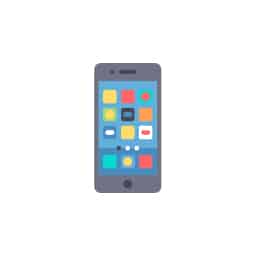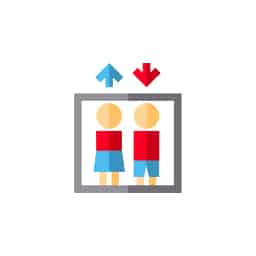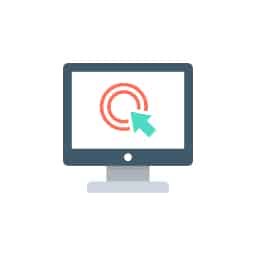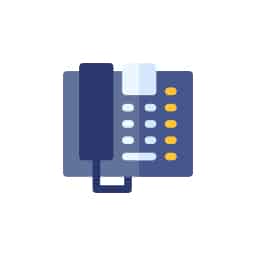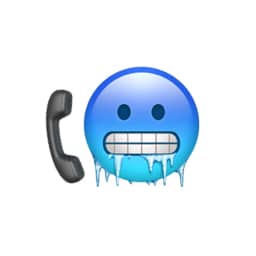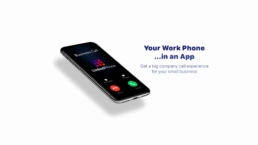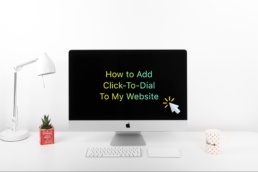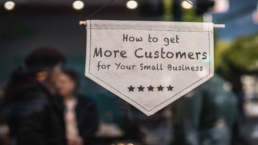The High Risks of Giving Out Your Personal Phone Number for Business
Table of Contents
- Is it Risky to Give Out My Personal Cell Phone Number?
- Everyone Has a Personal Number in Their Pocket
- The Dark Side of Handing Out Your Personal Phone Number
- Top 10 Teasons NOT to Use Your Personal Number for Business
- Starting a Business with Your Personal Number Will Lead to Regrets Down The Road
- A Virtual Business Phone Number Adds Value to Your Company
- Small Business Resources for Business & Personal Growth
Is it risky to give out my personal cell phone number?
Many businesses, government organizations, and services use your personal phone number as a key method for identify verification. Your phone number can provide access to highly sensitive personal information and potentially lead to identity theft. It is important to be very careful about who you share your personal phone number with.
It seems that everyone wants our phone number these days. It is used for rewards programs, reservations, account verification and, recently, contact tracing. When starting a new business, it can be tempting to just give customers and suppliers your personal phone number in order to save money, time, and effort. You already have one, it’s easy for you to remember, and there are no extra expenses or setup involved. However, there are a number of risks associated with using your personal phone number for business, and it’s important to understand what they are.
Everyone Has a Personal Number in Their Pocket
Let’s cast our minds back about ten or twenty years, to a time when cell phone and smartphone penetration wasn’t nearly at the level it is today. Most people and businesses still conducted their affairs via landline telephones. Having a personal number and a separate business number was almost automatic, since they were connected to physically distinct devices and locations.
LinkedPhone serves the small business community with local & toll-free business numbers that work with your cell phone, desk phone, & laptop. Add a 2nd phone number to your cell phone with our mobile app. Talk & text with clients on the go. Add team members too. Finally break free from the desk phone. At LinkedPhone, freedom rings! 🔔📱💻☎️
Today, we are all accustomed to using our personal phones and phone numbers for just about everything. We manage our bank accounts and order food via apps, talk to our friends, family, and co-workers over voice and messaging, even use our numbers for two-step identity verification with online services. We can even manage our businesses using mobile apps. And along with putting a cell phone in the pocket of every person on Earth, came the expectation that those people would all be reachable at their cell phones, all the time.
If you’re starting a new business, it would seem to make perfect sense to just keep the ball rolling, and give out your personal number for business purposes. Here are a few common misconceptions about using a personal number for business that can (and will) backfire on you:
-
- “I already use my number for everything else, why not for my business?”
- “I can just change it later if the business takes off.”
- “I’m doing a start-up, I can’t afford to pay for a business line.”
- “What if someone needs to reach me when I’m away from the office?”
- “Using my personal number will make me seem more friendly and approachable.”
Those intuitions can lead us down some dangerous paths, so let’s take a closer look at some of the risks involved with giving out your personal number.
The Dark Side of Handing Out Your Personal Phone Number
Brian X. Chen, a writer with the New York Times, shared an experience that he had working with a security researcher to see how his personal phone number could expose him, and all of us, to possible identity fraud and other online risks. His findings were eye-opening, and understanding them can help us to see how connected our sensitive personal information is to our phone numbers.
Chen provided his personal cell number to the researcher, who started by performing a simple search of publicly available records on White Pages Premium, a public-facing web service that costs only $5 per month. According to Chen, within an hour, the researcher had, “a full dossier on me — including my name and birth date, my address, the property taxes I pay and the names of members of my family.”
Business Growth Toolkit
Get the latest thought leadership insights on growing your business plus occasional LinkedPhone updates. We respect your inbox!
The security firm that Chen was working with had access to more sophisticated tools which they could have used to extract all kinds of information about him from private consumer and government databases. In the hands of an attacker, that information could be used to guess passwords, steal his identity, even contact family members for possible extortion attempts.
Our personal phone numbers are one of our strongest identifiers these days, online and offline. Even if we don’t willingly provide them, cell providers and other services we interact with regularly provide or sell our data to third parties. We can’t always control who has access to even very personal identifying information about us.
Another writer, Tlholohelo Makatu, writes on Medium.com about bad experiences that she had after sharing her personal number with clients.
“As a result,” she writes, “I would receive calls or messages from clients and suppliers. A lot of the time, I’d get these when I’m on my way to work, considerably before 8 AM.”
For Makatu, it only got worse from there. When she provided her personal number to business contacts, she was opening herself up to all kinds of unwelcome contacts outside of business hours. It would seem that, when customers and providers know they can reach you away from work, they can and will take advantage of that.
Here are some of Makatu’s other experiences after giving out her personal number:
-
- “A coordinator for a programme which my employer funded messaged me via WhatsApp over the weekend — AT NIGHT — to ask how I was.”
- “Clients can feel entitled to your time when they have something pressing on them which only you can address or solve. They feel they can contact you whenever they please, but when it’s time for you to get hold of them (for business), it’s straight to voicemail.”
- “A man, who had been a part of a meeting which I arranged between him, his boss and mine, contacted me to ask how I was doing, admitted that he was interested in me and wanted to know if we could hang out.”
Her stories go on, but these cases are illustrative. They show us the sorts of risks that giving out our personal numbers for business-related interactions can expose us to. To help understand this more clearly, we’ve boiled down the top ten risks associated with using your personal number for business activities.
Top 10 Teasons NOT to Use Your Personal Number for Business
The list of reasons why you shouldn’t give out your personal number to customers, clients, or suppliers is extensive. But there are a few key reasons to avoid doing this, which can have critical impacts on your work and home life.
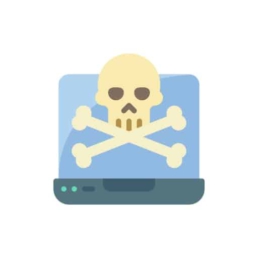
1. Exposure to online threats
As Brian Chen learned, your personal number is a key identifier for all kinds of sensitive information, and shouldn’t be given out lightly. Now think of all the ways that a business phone number gets used, and how many people it will be exposed to: business cards, promotional materials, your website, supplier databases, business licenses, tax records…the list goes on.
By putting your personal number on business materials, you are amplifying your potential exposure to being targeted not just by annoying telemarketers, but even by scammers and identity thieves.

2. Exposure to robocalls and telemarketers
Speaking of annoying telemarketers, robocalls have become an increasingly serious problem in this hyper-connected era. With the expansion of voice over IP (VOIP) technology and connectivity, call spammers and telemarketers can automatically dial hundreds or thousands of numbers almost instantaneously. According to the Federal Communications Commission (FCC), U.S. consumers received nearly 4 BILLION (with a B!) robocalls PER MONTH in 2020, and chances are you’ve received more robocalls than ever during the last few years.
Even though it’s illegal to call someone who hasn’t given their consent for marketing purposes, most robocallers ignore this along with Do Not Call lists, counting on the fact that the FCC and FTC (Federal Trade Commission) are usually just too busy to come after them, according to Consumer Reports.
By keeping your business and personal lines separate, you won’t have to suffer through the massive increase in robocalls that your number would surely receive after putting it out there for your business. A virtual phone system also helps with spammers by putting them into an automated call tree, where the call times out after not selecting an option, leaving you free to answer only important business calls.
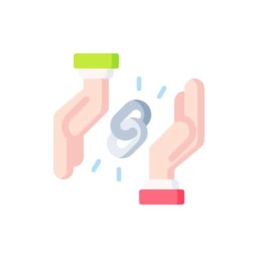
3. Your business is tied to your personal number
If you choose to list your personal number for your company, there will be no way to separate business from personal communications. Think of how complicated it is just keeping track of all the calls and messages from friends and family in your phone already. Now layer in every customer contact and service provider, especially as your business grows, and think about how difficult it could quickly become.
What’s more, we often provide our phone number as identifying or contact info for all kinds of reasons. And if you have to change your number for whatever reason, that could render any marketing materials, business accounts, or outside contacts useless. What would happen if a customer tried to reach you and the line was disconnected? They would be unlikely to call back.

4. Limited calling features that don’t scale with business growth
Auto attendants, directories, customer service queues, these are features which individuals don’t need, but every business does. It’s nice for a customer to call and have a human (you) answer right away, but as a business owner you might not have the time to field every call yourself, right away. Automated features can help customers get the help they need without having to take up your precious time, and can route calls to voicemail or other lines as needed.

5. No control over additional business lines
As a startup, saving money is paramount, and in the beginning, you and your co-founders, maybe even your first employees, might consider using your personal phones to conduct business, “just for a while”. This is a mistake. As your business grows, expands, and layers on more complexity, you as the owner will need to know about everything that happens with your company.
This isn’t to say that you should spy on your employees, but being able to control who handles which communications, and how customers and suppliers interact with them, is critical to the smooth functioning of any business.
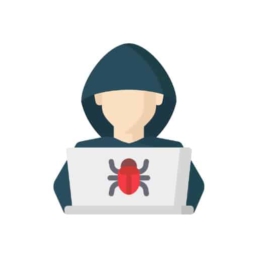
6. Personal privacy is compromised
We should all take a hint from Tlholohelo Makatu’s experience, who learned that giving your personal number to clients and providers opens you up to all kinds of extracurricular communication that you might not be ready for. This could run the gamut from business calls outside of work hours, to unwelcome advances from people you would prefer to think of as just colleagues.
Human nature means that if you give people an opening, some will take advantage of it. Don’t open yourself up to dealing with work when you would rather be relaxing, or to people invading your personal space when you would rather be left alone.

7. Inability to distinguish between personal and business calls
This might seem obvious, but consider how many calls you receive from unknown numbers, just on your personal phone. Now think about the fact that every single customer cold call will come from an unknown number, and service providers could call you from all kinds of numbers. If you don’t know which is which (business or personal), how are you supposed to be prepared for the call, or even how to answer? Friends could be confused if you answered with your business name, and customers will be turned off if you answer with a simple “hello.”
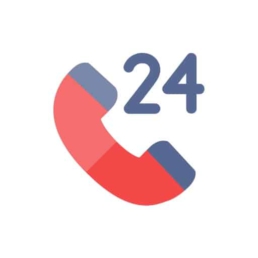
8. Lack of control over personal vs. work time
When your personal number is your business number, you’re never really away from work. Most people sleep with their phones next to their bed, or at least in the same room. And for most of us, our phones never really leave our sides during the day. If you give out your personal number for business, even if you’re having lunch, making dinner, picking up the kids, relaxing after work or on the weekend, you’re effectively still at work.
Work life balance is a hot topic these days, especially after the coronavirus pandemic, and knowing how to separate the two is critical to maintaining a healthy, balanced life. By adding a business phone number to your personal cell phone as a 2nd number and/or a completely separate phone, you can control when and how business calls get answered.
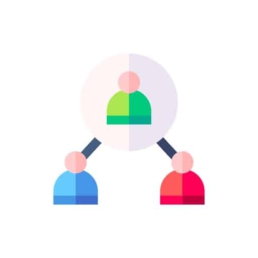
9. Inability to pass control to colleague or subordinate
One of the great features of a business phone system is the multitude of lines and control over how those lines get used. If you need to switch off for a meeting, a break, or just to get some work done, you can set your line to go straight to voicemail, or redirect calls to a colleague, secretary, or another department.
If your business number rings your personal line, you’re not going to want to pass that to someone else. Imagine handing your personal phone to a colleague to answer while you attend to a customer or lead a meeting. Who knows what might happen in the meantime? With today’s technology, it’s easy to share a common business number with team members without revealing anyone’s personal cell phone number to customers.

10. Using your personal number looks unprofessional
Last but not least, having a separate business phone number adds to your prestige and appeal as a business and a brand. Your phone number is a key part of your brand identity, as well as a primary point of contact for customers and suppliers. If a customer realizes they are calling a personal cell phone number, especially if you answer with a simple “Hello?”, it may be difficult for them to take you seriously as a professional.
Business numbers provide a veneer of respectability over your operation, and you will never have the problem of not knowing how to greet the caller. What’s more, local or toll-free numbers can be customized to be easy for customers to remember. Offering toll-free business calling is also a great way to appeal to customers and suppliers who may still be calling from a traditional landline phone.
Starting a Business with Your Personal Number Will Lead to Regrets Down The Road
You might be saying to yourself, well, I already have a number. Time and money are limited for me as an entrepreneur, so why not just use that for now? I can always add a business number later if things take off.
Using your personal number at launch locks those digits into everything about your business. Websites, social media, marketing campaigns, supplier records, etc. Changing it later will render all those previous listings useless, leading to customer frustration, confusion with service providers, and difficulty just making and receiving calls. Not to mention all the other risks and challenges highlighted above.
Save yourself the pain later and get a business number from the outset, while your operation is still small. It may be a (small) added expense, but as you grow, the ease of scaling, adding new lines and features will be well worth the cost. You can even start with a free platform like Google Voice just to get the number, then port it to a service like LinkedPhone once you’re sure that’s the number you want, and you need the additional functionality.
A Virtual Business Phone Number Adds Value to Your Company
We’ve discussed lots of reasons why using your personal number for business is a bad idea, but what about all the ways that using a business number adds value to your company? There are lots of great reasons to get a business phone number, some of which we covered previously in another article, Should I Get a Phone Number for My Business? The answer is an unequivocal yes, but what are those reasons? Here are just a few:
-
- Improve professionalism and customer satisfaction
- Reliability of your business phone service, portability, and scalability
- Separate your personal & business communications
- Choose a business number that’s easy for customers to remember
- Exercise control over internal and customer-employee communications
- Maintain work-life balance for a healthy body & mind
Thanks to the wide availability of cheap and accessible cell phones and other communication technology these days, there are a few different ways you could go about getting a business number. You might want to carry a second cell phone, or expand the current plan with your cell provider to add another line just for work. These are perfectly good solutions, but neither will provide the depth of features and support provided by a virtual business phone system.
A business phone number from LinkedPhone can help you do all this and more, with a unified platform that connects cell phones, office phones, web apps, and just about any device you can think of. You can enjoy the benefits of talking and texting with customers from any device, adding team members, and using professional call options to route business calls to the right people on your team. Setup is a breeze and pricing couldn’t be simpler. Sign up for a business phone number and try it free for 7 days. At LinkedPhone we like to say, “Let Freedom Ring!”
Small Business Resources
A special high five to Miles Burke for his outstanding research and contributions to this article. We love working with and supporting like-minded entrepreneurs. Thank you Miles! ❤️
Get In Touch
We would love to hear from you.
Please contact us at any time with questions or feedback.





